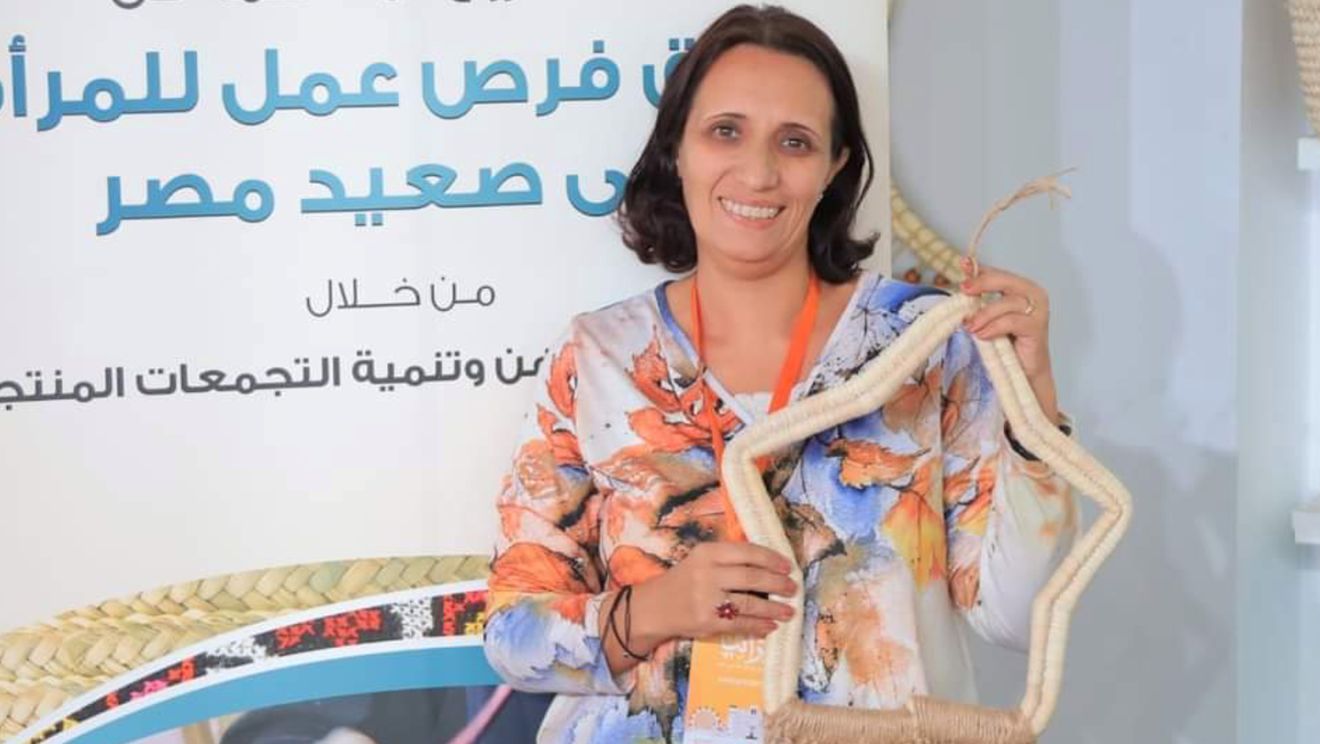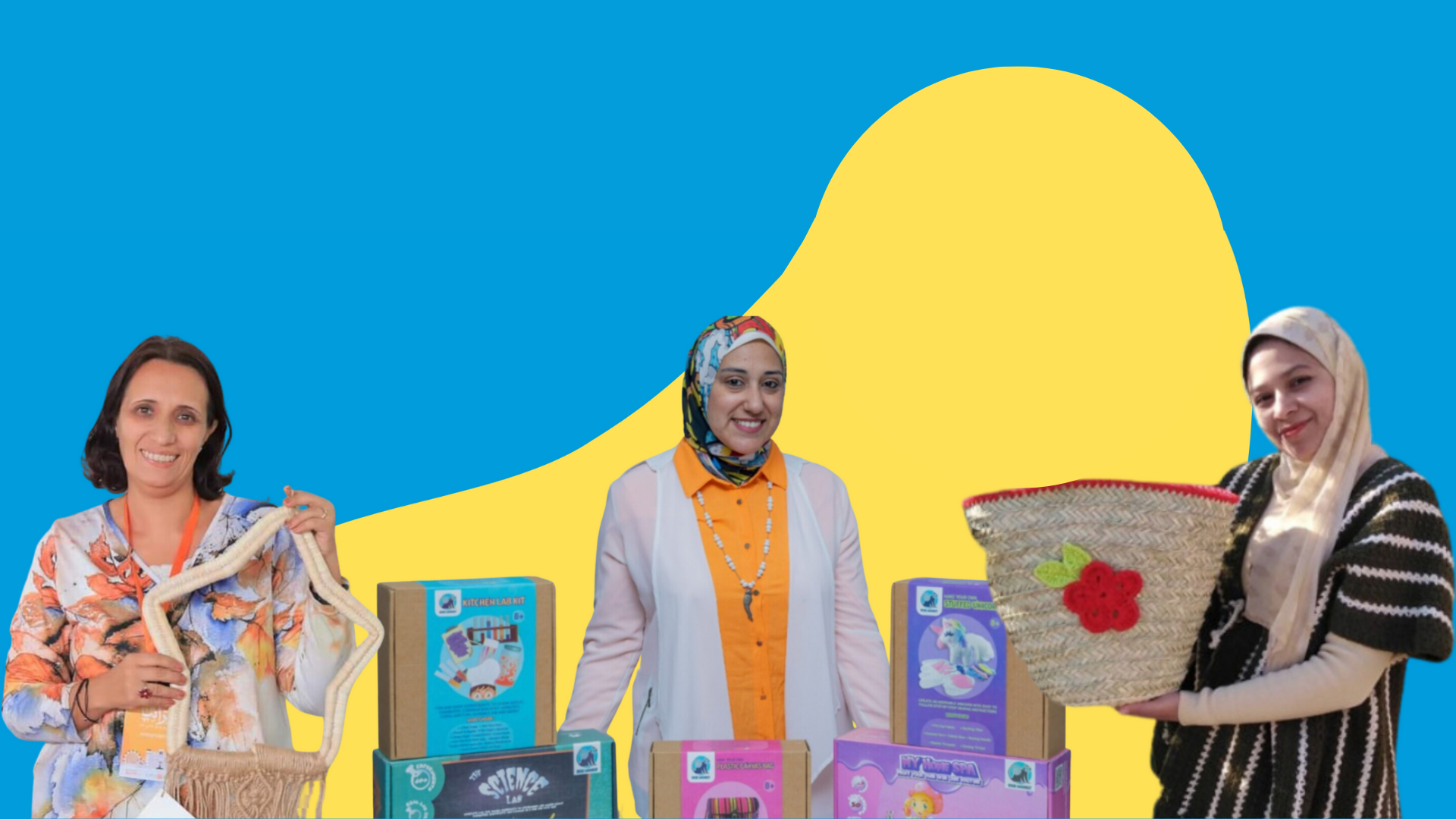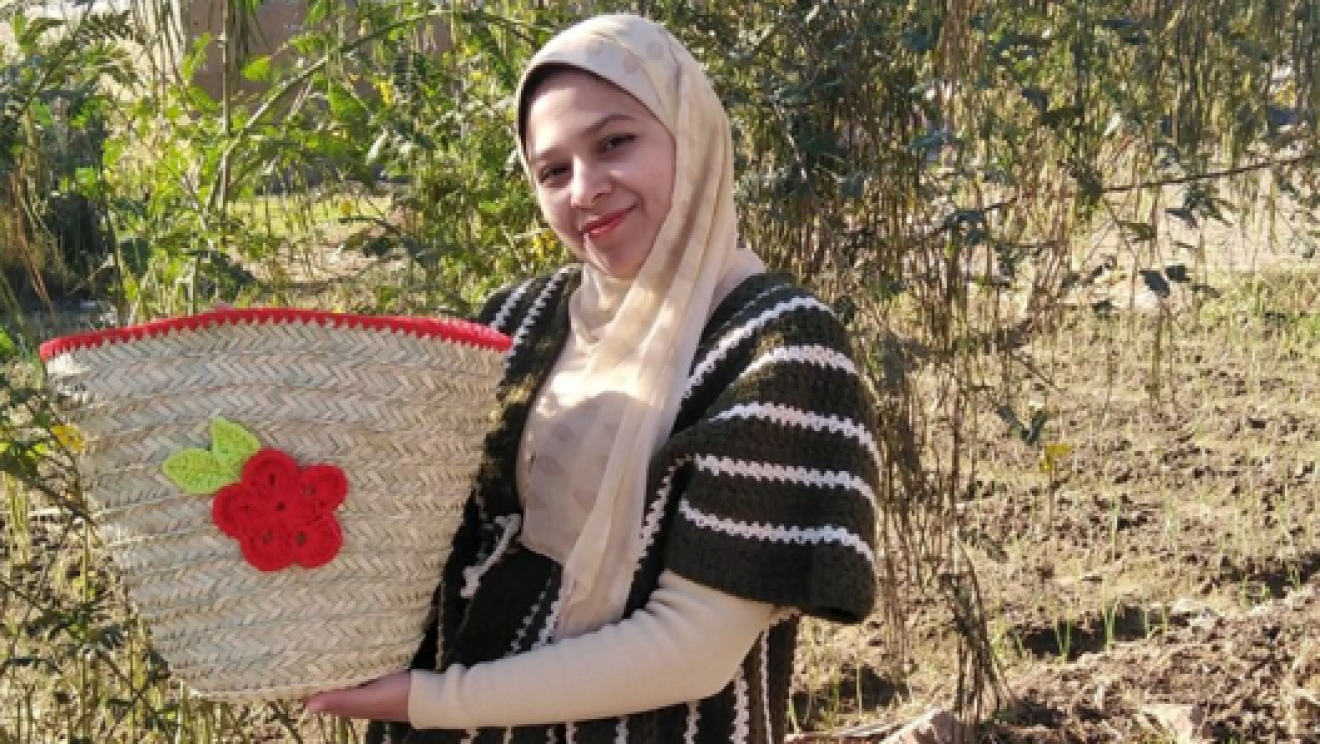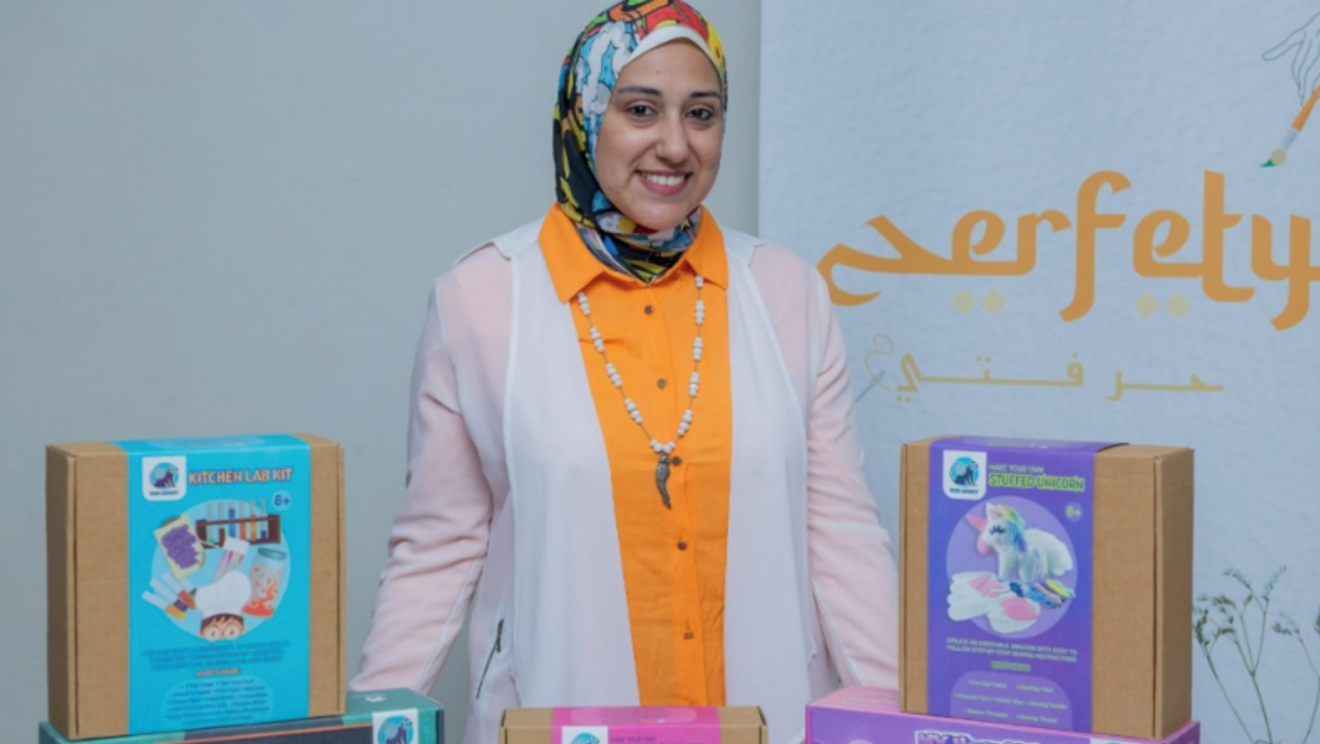

Women entrepreneurs empowered through the Rabeha joint programme
27 June 2023 Elena Cooke

In Egypt, there are 3.4 million micro, small and medium-sized enterprises (MSMEs) which contribute about 43% of the country’s GDP. Three women entrepreneurs - Jackleen Maher, Aya Mohsen and Noha Ali - have made a significant impact on local communities, showcasing the spirit of entrepreneurship and the transformative potential of small businesses. Each of them have received support through the Rabeha programme which enhances women's economic empowerment through training and business coaching.
Rabeha, which means ‘winner’in Arabic, is a joint programme implemented by the United Nations Industrial Development Organization (UNIDO) and UN Women, in partnership with the National Council for Women, the Ministry of Trade and Industry and the Medium, Small and Micro Enterprises Development Agency, with the generous support of Global Affairs Canada.
Jackleen Maher - Crafting a sustainable future
Jackleen Maher has embarked on a mission to empower rural women by establishing an association focused on developing handicrafts, particularly with palm leaves. Recognizing the need to provide fair wages and a sustainable source of income for women and their families, last year she launched Jadila, a project that merges traditional crafts with modern designs.

Maher talks about the abundance of palm trees growing near her home in Fayoum Governorate, and explains, "The craft of making products from palm waste has been a part of our heritage for generations. However, the existing products were outdated, and there was no recognized brand to compete in international markets. My vision was to integrate other handicrafts with palm products, collaborating with craftswomen and university graduates to create environmentally friendly, modern, heritage products."
Maher encountered several challenges along her entrepreneurial journey, from learning manufacturing processes and training craftswomen in new techniques to changing perceptions about the products. Marketing the products and establishing a presence in the market presented their own obstacles. However, Maher found a turning point in her entrepreneurial journey through the Rabeha programme, facilitated by the Micro, Small and Medium Entrepreneurship Development Agency in Fayoum.
"Rabeha provided the much-needed support, addressing critical aspects such as cost calculation, pricing, and creating a professional business model," Maher says with gratitude. The Rabeha programme not only developed her strategic thinking skills but also enhanced the identity of Jadila's products through design skills training.
Through the support of Rabeha, Maher created seven additional jobs, resulting in a total of 32 women employed by Jadila in the palm products sector. The programme has also fostered collaboration among Jadila's team and fellow Rabeha trainees, resulting in numerous proposals for ideas and projects for the future.
Aya Mohsen - Nurturing Creativity
Aya Mohsen's journey as an entrepreneur in the handicrafts sector began after visiting a handicraft exhibition at Fayoum University. Inspired by the creativity and uniqueness of the products, Mohsen envisioned her future in the industry. Her main motivation was to improve and develop her talent, increase her income, and gain more experience.
Coaching and technical training through the Rabeha programme enabled Mohsen to launch her business, Artie for Handicrafts. Initially thinking that Rabeha was solely a training programme, Mohsen soon discovered its broader scope. "I learned a lot of things, such as thinking outside-the-box, logical thinking, starting up a project, and finding new markets," she shares.

Through entrepreneurship and technical skills training provided by the Rabeha programme, Mohsen overcame challenges related to product pricing and conducted a feasibility study. She gained skills in business planning, logical thinking and marketing to help communicate the value and benefits of her products to customers.
Mohsen's project has created employment opportunities for two women, and she actively trains and coaches other women in her community. She aims to further establish her successful project by gaining quality standards and contributing to local handicraft clusters. Mohsen envisions providing high-level training courses and helping market the products of other women entrepreneurs.
Noha Ali - Sustainable Education
“You see that picture in front of you, yes, it is me. This is what the Rabeha programme did to me with the utmost smoothness, professionalism, and true belief in me as a woman…We always know that the road to success is long and not easy, but on the way there was a programme that came to us riding its white horse to be the dream of every Egyptian woman who dreams of being a successful entrepreneur serving her small community,” states Noha Ali, co-founder of Bluemonkey kits describing her experience with the Rabeha programme that helped her transform her project from an idea into a registered business.

Ali’s start-up offers STEM educational kits for children to promote sustainable education. Through Rabeha, she accessed new networks and gained deeper knowledge about market research, legal procedures, finance, and accounting. This resulted in the expansion of her business, registration of the company, enhancing her knowledge of the legal procedures and taxation system. Additionally, Ali learned how to develop a pitch deck to raise funds from potential investors.
Empowering women entrepreneurs for sustainable and inclusive development
Looking ahead, Maher, Mohsen and Ali aspire to achieve key milestones for their respective projects. Maher envisions showcasing her brand in international exhibitions, aiming to expand its reach and impact. Additionally, she is committed to providing employment opportunities to even more women in her community, further empowering them through economic participation. Mohsen, on the other hand, plans to further establish her own successful project with legal status and quality standards. Ali, along with her team, has a plan to grow the business through improving the website and focusing on introducing their products to international markets.
These inspiring stories exemplify the strength and determination of women entrepreneurs. Their creativity, resilience, and the support they received from initiatives like the Rabeha programme demonstrate the transformative power of empowering women in MSMEs.
The Rabeha programme aims to support the economic empowerment of women through increased access to employment and/or self-employment opportunities. To date, Rabeha programme has successfully supported the access of 6,486 women entrepreneurs and job-seekers to a wide range of employability and business development services across Cairo, Giza, Beheira, Alexandria, Fayoum, Beni Sueif and Minya.